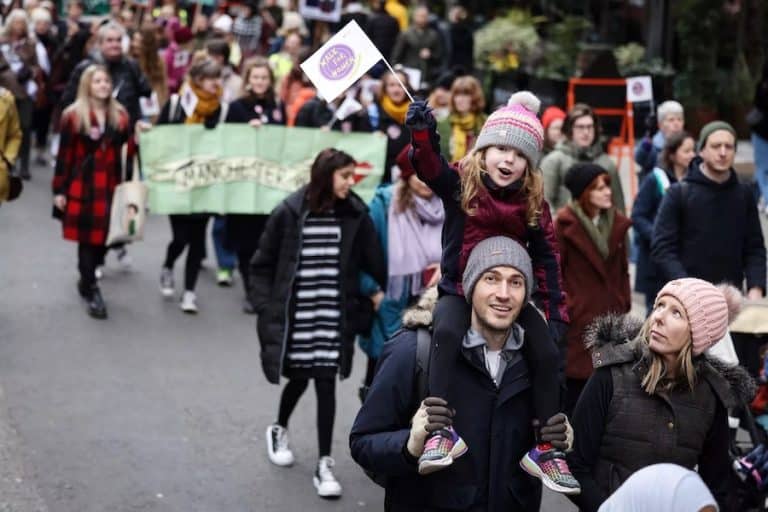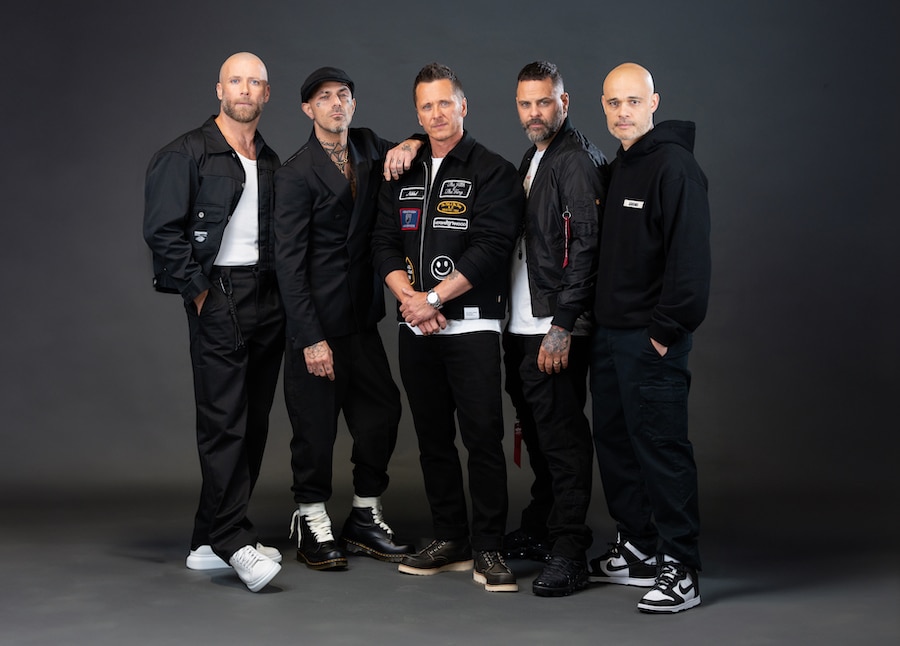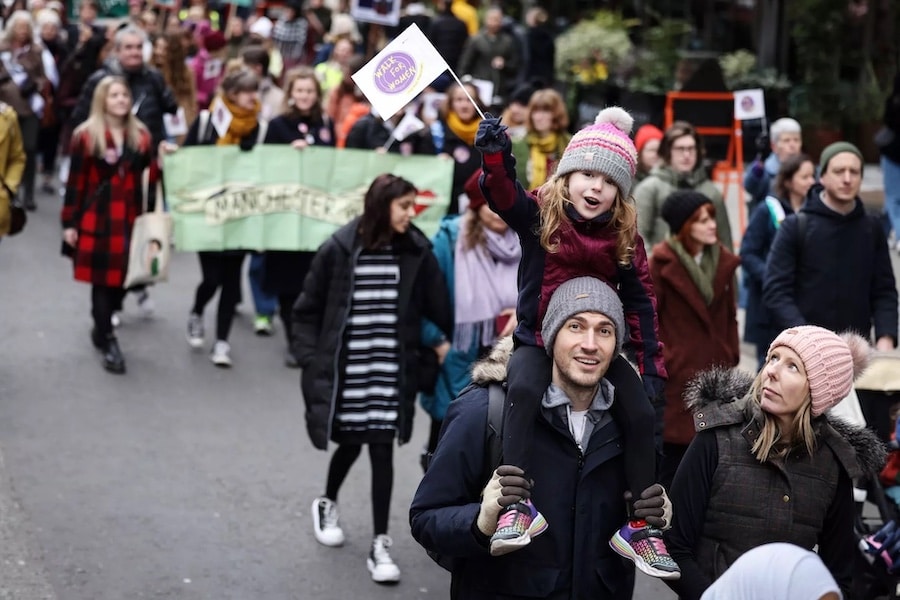The Munich Air Disaster remembered 67 years on
- Written by Thom Bamford
- Last updated 1 month ago
- City of Manchester, Cornerstone, Featured, Man Utd, Sport

Sixty seven years on from the Munich Air Disaster that claimed the lives of 23 people including eight Manchester United footballers, club backroom staff, journalists and supporters.
The disaster all but wiped out the legendary “Busby Babes” – the exciting young team assembled by Matt Busby which was, at the time, vying for a third consecutive First Division championship. In addition to the eight team members who died, another two never played again.
The Munich Air Disaster
It was on 6th February 1958 that the British European Airways Airspeed Ambassador airliner carrying 38 passengers and six crew crashed in a blizzard on its third attempt to take off from Munich airport.
United were returning from Belgrade where they had just beaten Red Star Belgrade in the European Cup and had stopped off at Munich for re-fuelling.

Among the dead were eight talented Manchester United players, three club officials, eight journalists, and other passengers. The Munich Air Disaster remains an awful part of football history, a sorrowful yet defining moment that tested the spirit and resilience of the club and its supporters.
The tragic flight
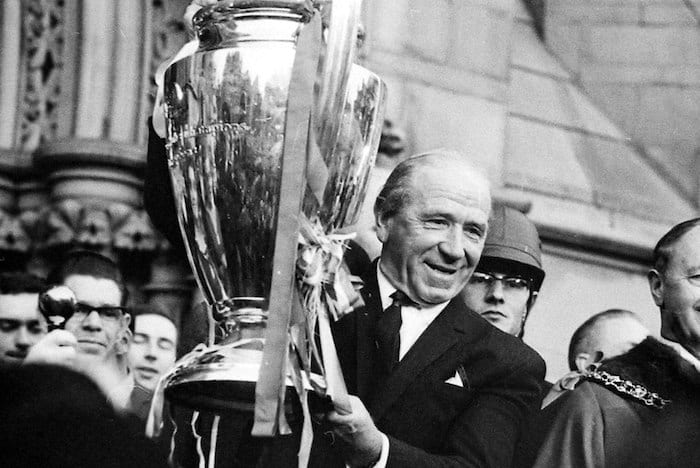
Manchester United’s team, famously known as the “Busby Babes” due to their youthful brilliance under manager Sir Matt Busby, had just played a European Cup quarter-final match against Red Star Belgrade. The team was returning to England with high hopes when their aircraft made a scheduled refuelling stop at Munich-Riem Airport in Germany.
Severe winter conditions made takeoff difficult. Two initial attempts to leave the icy runway were aborted. On the third attempt, disaster struck—the aircraft failed to gain enough speed to take off, skidding off the runway and crashing into a nearby house. The crash sent shockwaves through the football world and beyond, leaving Manchester United and their supporters in unimaginable grief.
The lives lost
The tragedy took the lives of some of the most promising players of their generation. The eight Manchester United players who perished in the disaster were:
- Geoff Bent (25)
- Roger Byrne (28)
- Eddie Colman (21)
- Duncan Edwards (21) – regarded as one of the greatest talents in English football history, succumbed to his injuries 15 days after the crash
- Mark Jones (24)
- David Pegg (22)
- Tommy Taylor (26)
- Liam Whelan (22)
Alongside them, three key members of Manchester United’s staff also lost their lives: club secretary Walter Crickmer, trainer Tom Curry, and coach Bert Whalley.
The disaster also claimed the lives of eight distinguished journalists covering the team’s journey, including Alf Clarke, Donny Davies, George Follows, Tom Jackson, Archie Ledbrooke, Henry Rose, Eric Thompson, and Frank Swift, a former Manchester City goalkeeper turned journalist.
Others who perished in the disaster included aircraft captain Ken Rayment, crew member Tom Cable, travel agent Bela Miklos, and United supporter Willie Satinoff, a close friend of manager Sir Matt Busby.
Several passengers, including Busby himself, survived but suffered serious injuries. Busby spent weeks in critical condition, enduring multiple surgeries before making a miraculous recovery. Many others, including assistant manager Jimmy Murphy, played a crucial role in keeping the club going in the wake of the tragedy.
A club in mourning and the rebuild
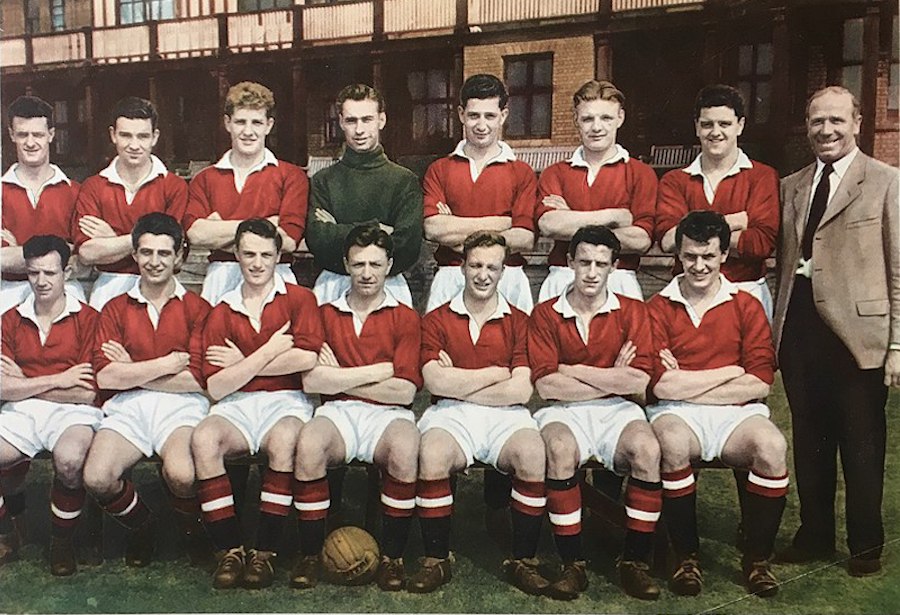
The loss of so many key figures left Manchester United devastated. The club had been on the verge of greatness, boasting a youthful squad that many believed could dominate European football for years to come. In the immediate aftermath of the crash, United had to rely on reserve players and emergency signings to field a team.
Assistant manager Jimmy Murphy, who had not traveled with the squad due to his commitments with the Welsh national team, took charge of the club while Busby recovered. Against all odds, United reached the FA Cup final that season but lost to Bolton Wanderers.
The club’s resilience was truly tested in the following years. Matt Busby, defying all expectations, returned to management and began rebuilding the team from the ground up. A decade later, his vision was realised when Manchester United won the European Cup in 1968, becoming the first English team to achieve this feat. Survivors such as Bobby Charlton, Bill Foulkes, and Harry Gregg played crucial roles in this triumph, ensuring that the spirit of the Busby Babes lived on.
The legacy of the Munich Air Disaster
The Munich Air Disaster remains one of football’s greatest tragedies, a moment of unimaginable sorrow that continues to resonate with generations of Manchester United supporters. Each year, the club and its fans hold memorial services to remember those who lost their lives, ensuring that their legacy is never forgotten.
The iconic words “We will never forget” are not just a slogan—they are a promise. A promise that the sacrifice and brilliance of the Busby Babes will always be honoured, that their story will continue to inspire, and that Manchester United’s spirit, forged through both triumph and tragedy, will endure forever.
You can find out more about the history of the Busby Babes by clicking here
- This article was last updated 1 month ago.
- It was first published on 15 January 2018 and is subject to be updated from time to time. Please refresh or return to see the latest version.
Did we miss something? Let us know: [email protected]
Want to be the first to receive all the latest news stories, what’s on and events from the heart of Manchester? Sign up here.
Manchester is a successful city, but many people suffer. I Love Manchester helps raise awareness and funds to help improve the lives and prospects of people across Greater Manchester – and we can’t do it without your help. So please support us with what you can so we can continue to spread the love. Thank you in advance!
An email you’ll love. Subscribe to our newsletter to get the latest news stories delivered direct to your inbox.
Got a story worth sharing?
What’s the story? We are all ears when it comes to positive news and inspiring stories. You can send story ideas to [email protected]
While we can’t guarantee to publish everything, we will always consider any enquiry or idea that promotes:
- Independent new openings
- Human interest
- Not-for-profit organisations
- Community Interest Companies (CiCs) and projects
- Charities and charitable initiatives
- Affordability and offers saving people over 20%
For anything else, don’t hesitate to get in touch with us about advertorials (from £350+VAT) and advertising opportunities: [email protected]
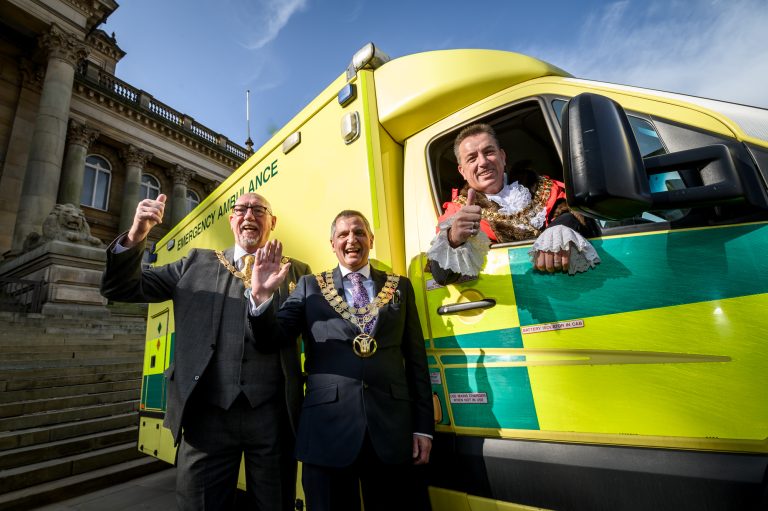
Mayors and veterans unite to drive ambulances of hope to Ukraine

The bookshop where everything is free and everyone gets a warm welcome
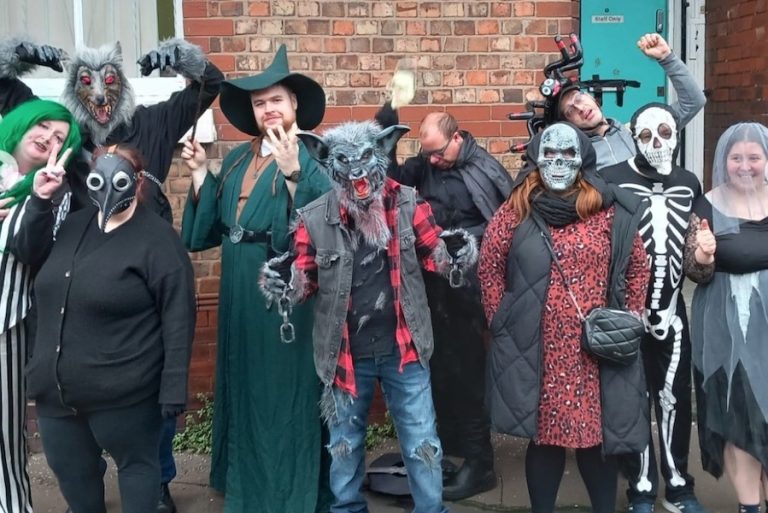
How I AM has been changing lives for neurodivergent people for over 50 years

Review: RNCM Session Orchestra with Tim Burgess and Helen O’Hara is ‘a joyful evening of classics’

